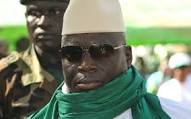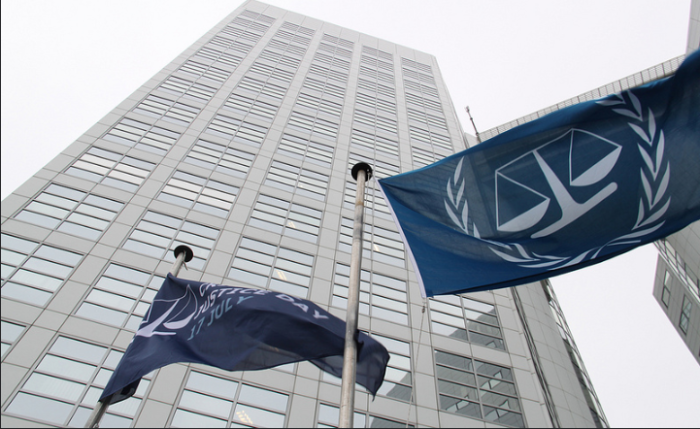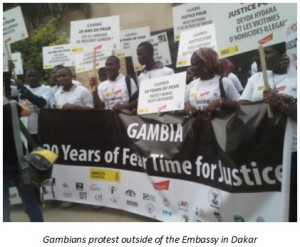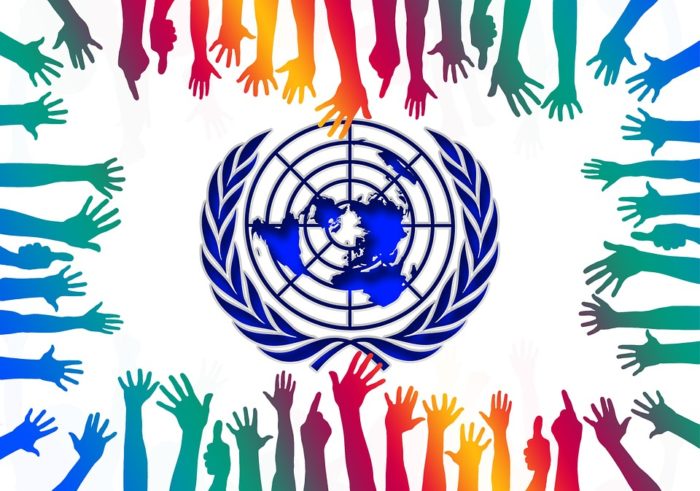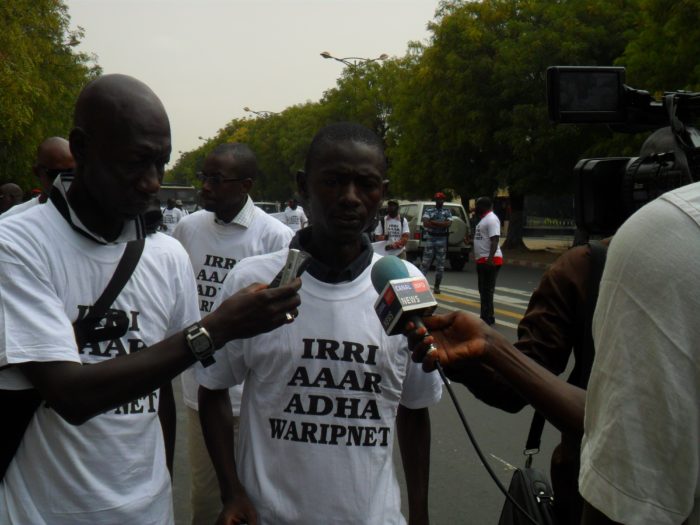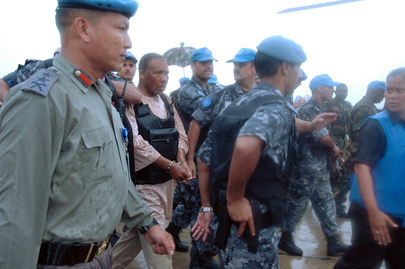On 16 March 2015, the UN Special Rapporteur on Torture and other cruel, inhuman or degrading treatment or punishment, Juan Mendez, released the report of his November 2014, visit to the Gambia. Torture is a crime under Section 21 of the Gambian constitution as well as a result of the ratification of the African Charter…
On 30 December 2014, some members of the Gambian opposition and dissidents in the Diaspora took up arms with the aim of overthrowing the regime of President Yahya Jammeh. The coup was foiled, but the attempt has triggered a crackdown on real and perceived political opponents and worsened the already serious human rights situation. On…
When the Rome Statute of the International Criminal Court (ICC or “the Court”) was adopted in 1998, it was greeted with great fanfare by human rights activists around the world as an important milestone in the progress of the human rights movement. As the Court began to investigate its first cases in 2003-04, many civil…
Since his accession to power by coup d’etat on 22 July 1994, President Yayah Jammeh has been accused of ruling the Gambia with an iron fist. After 20 years in office, his record has been tarnished by allegations of serious human rights violations including, restriction of the freedom of expression and opinion, arbitrary arrest and…
June 20th marked United Nations World Refugee Day. In Senegal, IRRI marked its commitment to promoting and protecting the human rights of asylum-seekers, refugees, and internally displaced persons (IDPs) by raising awareness among both the authorities and the Senegalese public of the conditions of refugees and of their rights under the 1951 United Nations (UN)…
For thirty two years, the armed conflict in Casamance, which has pitted the government of Senegal against separatist rebels of the Movement of Democratic Forces of Casamance (MFDC), remains unresolved and the civilians displaced by it remain vulnerable. The MFDC rebellion, which is one of the oldest in Africa, is calling for the independence of…
International Refugee Rights Initiative (IRRI) is concerned about the arrest of two journalists by the National Intelligence Agency (NIA) on Monday 13 January 2014. The publisher and managing editor of the private newspaper The Voice and Pan African News Agency (PANA) stringer in The Gambia, Musa Sheriff and freelance reporter Sainey Marehna were arrested in…
(This blog first appeared in Politico.It has been republished with permission from the author.) The debate around the International Criminal Court (ICC) in Africa is one that has polarised the continent, with equal-opportunity-mud being slung at African countries and the African Union (AU), as well as the ICC and the international community. Among the myriad…
This may be the first time that a former African Head of State is put on trial in Africa. On 8 February 2013, the Extraordinary African Chambers embedded in the Senegalese justice system were inaugurated in order to judge Hissène Habré, the former president of Chad, who ruled from 1982 to 1990. Habré has been…
On the occasion of World Refugee Day, the International Refugee Rights Initiative (IRRI) would like to draw the attention of the authorities and Senegalese public opinion to the situation of refugees. Senegal has signed and ratified international and regional conventions relating to the 1951 UN and the 1969 OAU Conventions on refugees. In addition, Senegal…
On Monday May 7, 2013, the Senegalese authorities expelled Makaila Nguébla to Guinea Conakry. He is a Chadian blogger and activist who had lived in Senegal since May 2005. Following a similar incident in which a Gambian opposition member was arrested at the airport and expelled to Mali, this latest development calls into question the…
The international community could have avoided the consequences of the crisis in Mali if they had mobilised earlier. And nothing can justify the inaction and slowness of the international and regional military deployment in northern Mali. In January 2012, violence broke out in northern Mali when Tuareg rebels of the National Movement for the Liberation…
Since Guinea gained independence in 1958, the country has been governed by a string of dictatorships. Discrimination along ethnic lines has resulted in massive human rights violations, killings, extrajudicial executions and disappearances. To date, these acts that have been committed by various governments remain unpunished, creating a culture of impunity. The first president of Guinea,…
West Africa is not an easy place to live if you are gay. In Gambia, fifteen men were arrested in April of this year on suspicion of being gay. After almost three months they were acquitted for lack of evidence. Five of them have since fled to Senegal where they are presently seeking asylum….
Under the leadership of Dawda Kairaba Jawara, the Gambia was known as a stable and democratic country where people could enjoy basic rights. However, since Yaha Jammeh came to power in a coup d’etat in July 1994, a lot has changed. Now, many human rights defenders, journalists, political opposition leaders and people who do not…
The President of the Republic of Senegal, Macky Sall, speaking on July 15 at the African Union (AU) Summit in Addis Ababa, reiterated his commitment to getting the trial of former Chadian President underway before the end of 2012. As the Senegalese Minister of Justice said during a press briefing, “this trial will be the…
On June 19 2012, IRRI, along with Accueil Aide et Assistance aux Réfugiés (AAAR) and Action pour les Droits Humains et l’Amitié (ADHA), organised a demonstration in Dakar to celebrate World Refugee Day. Representatives from about ten refugee communities living in Senegal participated in the celebration, including Gambians, Guineans, Ivoirians, Mauritanians, Chadians, Sudanese, Congolese, Rwandans,…
Volume 4, Issue 2 On February 19, Liberians in Buduburam refugee camp began a sit in protest. News reports and NGO accounts indicate that the protest was sparked by the introduction of a repatriation program. Refugees felt that the package being proposed by UNHCR was too little—and demanded more. Specifically, UNHCR’s spokeswomen in Geneva…
Volume 3, Issue 2 On July 21, 2006, history was made as former Liberian President Charles Taylor appeared in a courtroom in the Hague to answer eleven charges of war crimes and crimes against humanity. The Netherlands has agreed to host Taylor’s trial and the United Kingdom has agreed to jail him in the event…
